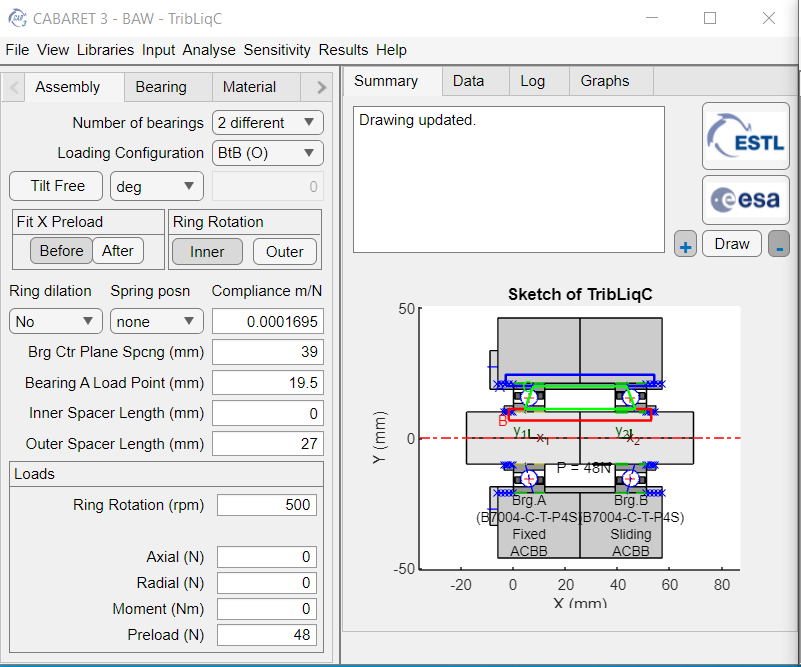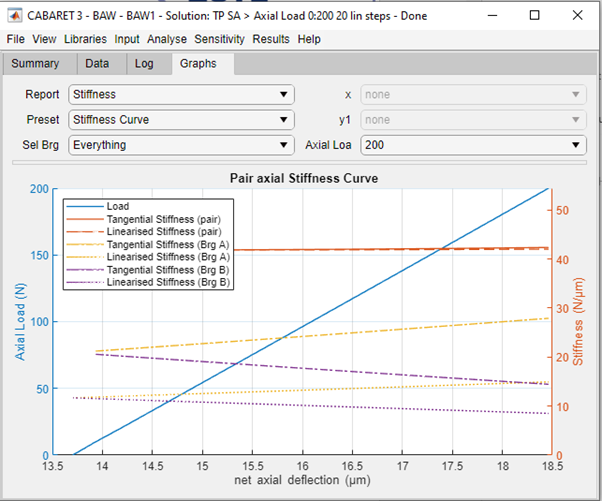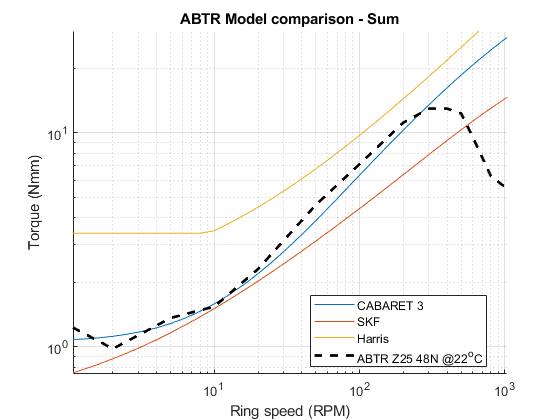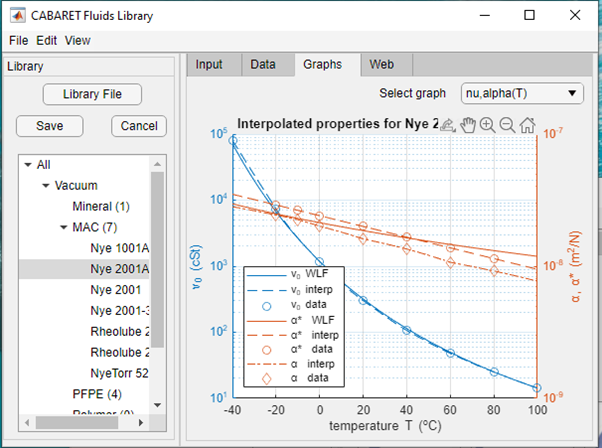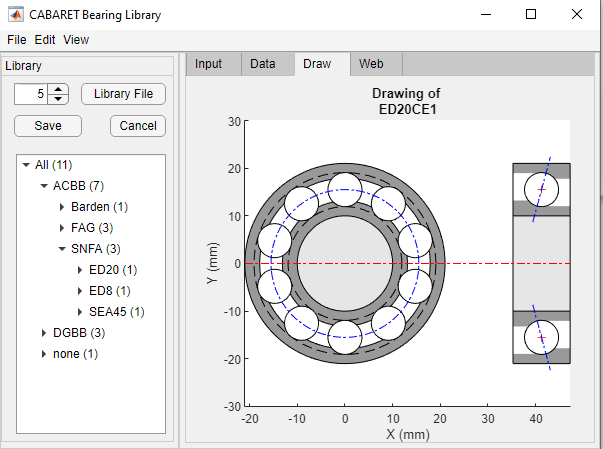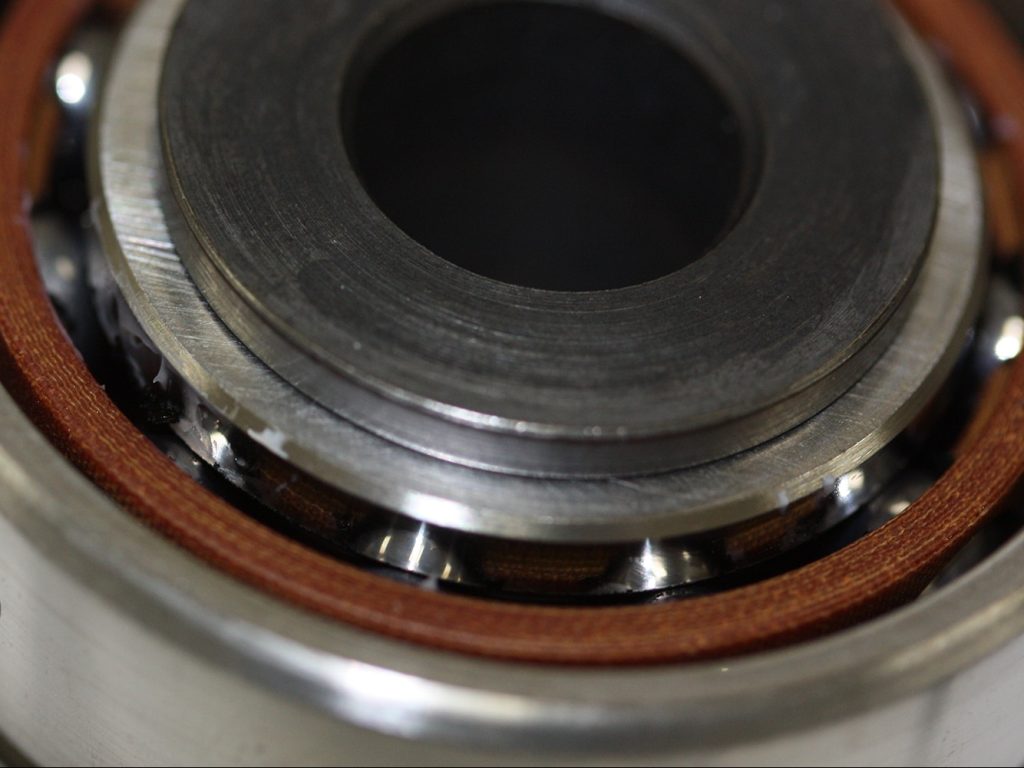
Current version: v.3192
CABARET – Ball Bearing Analysis Software
CABARET v.3
CABARET is a bearing analysis code which is applicable to analysis of ball bearings operating at all speeds under general loading. Its use permits design and selection of ball bearings, materials and lubricants as well as prediction of bearing performance for a range of applications from low-speed mechanisms to high-speed turbopumps (the application for which it was originally develop).
CABARET was originally developed by ESTL, part of ESR Technology, under ESA contract no 8280/89/NL/FG and has since been maintained and extended under various ESA contracts, most recently 4000134269/21/NL/MG. Under the terms of these contracts, companies or institutions within ESA member states are entitled to a free-of-charge sub-licence for use of Version 3. In accordance with the terms of the ESA sub-licence, use of the software is limited to its application for peaceful purposes within the field of space research and technology. CABARET can also be licensed by organisations outside the ESA member states, and for other applications.

Getting access to CABARET
To obtain access under and ESA sub-licence for space applications and if your company or institution is in an ESA member state and Canada, please fill in and sign the following form and send it to Dr Achilleas Vortselas: achilleas.vortselas@esrtechnology.com
For any other queries, please contact Mr Simon Lewis.
